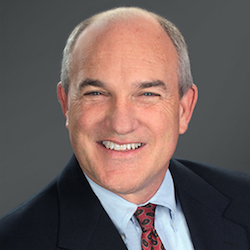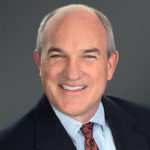
A few years ago, I found myself in the role of caregiver. My father received a diagnosis of cancer, and I was left with little choice after my mother passed away suddenly.
Even with decades of experience in the acute care and post-acute care setting, I lacked the perspective of firsthand caregiving experience. There is a kick-in-the-gut feeling when you are changing your father’s diapers because he is a man who cared for you, and you never expected to be caring for him in this way.
Forty years in an industry is not the same as a few months or years of caring for your own loved one. So I borrowed from one of the most powerful moments in my career: when I left acute care to transition into post-acute care.
At the time, the company I worked for, HCR Manor Care, offered an experienced-based onboarding process. It involved serving as a caregiver in a facility for one week, and it was one of the most eye-opening experiences in my lifetime and still resonates with me today.
In one scenario, I wore glasses smeared with petroleum jelly – a lesson in what our patient/resident may see. In another, socks on my hands taught me how difficult it might be for some of our patients/residents to grasp even a simple cup of water. This was my first introduction to empathy.
Aside from the usual grief and the emotional impact of caregiving from a male perspective, after my father died, I had a distinct understanding of the feelings men and women walk into our facilities experiencing. Now, as vice president of provider relations for StoneGate Senior Living LLC, I make a committed effort to visit every single one of our more than 40 communities on a quarterly basis each year. When I do, I go out of my way to stop to talk to a son or a son-in-law who is visiting with a loved one. I am transparent with them about my story so they know they are not alone in their struggle.
When I am not working, I reach out to help others in the community in which I live. One way I have chosen to give back to the industry is by starting a caregivers’ support group at my church, First Baptist Lewisville, called Oasis.
The burnout now for a caregiver, whether at home or in a senior living community, is real, and it has changed in the past 25 years. Then, the typical patient or resident would come in and see a community as their home, and they were not as frail as they are now.
Today, by-in-large, we serve people whose conditions are chronic, and many of them have an average of eight to 10 different medical issues for which they are being treated. This is one of the reasons why we have shifted to transitional and synchronized models, to make the acute care to post-acute care transition from acute care to post-acute care more seamless, which aids in reducing hospital readmission rates.
Once a patient or resident arrives and goes through treatment or rehabilitation at one of our communities, two things can happen: He or she goes home and reaches a higher level of functioning, or he or she passes away in our facility. I have seen deaths escalate tremendously. As a result, more and more people on the frontlines are suffering from burnout. People just cannot sustain watching people die every day.
Although I don’t do hands-on caregiving in my professional role, my personal experience allows me to impart these professional recommendations for avoiding burnout:
-
Provide an employee wellness program.
-
Administer patient satisfaction surveys.
-
Celebrate employee successes.
-
Implement health information technology solutions that save time and reduce employee stress.
-
Create personal touches in décor.
-
Train staff to spot the signs that something is off.
The senior living industry is a business, yes. To keep the lights on, we must make money. But these are human lives we are caring for, and a life is not a widget or a lightbulb.
Further, the greatest gift we can give is touch. The men and women in our communities are people who want to be loved, and we are with them during one of the worst times of their lives. The greatest qualification we can offer is empathy.
Mike Beaty is vice president of provider relations for StoneGate Senior Living LLC, an operator of senior living and post-acute care communities in Colorado, Oklahoma and Texas. Beaty leads company initiatives with acute care partners, physicians and payers.




